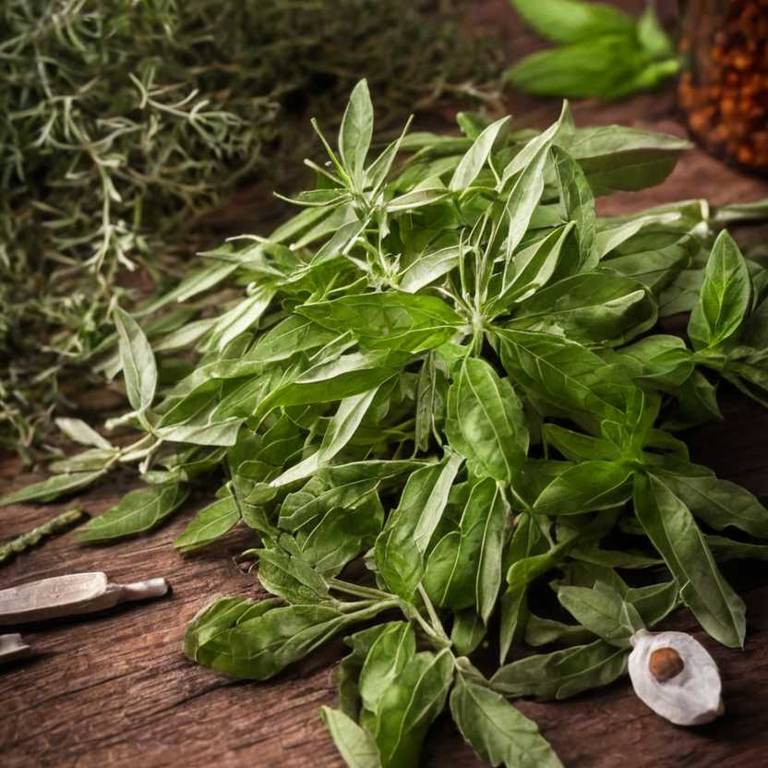By Leen Randell
Updated: Jul 20, 2024
10 Medicinal Constituents Of Ziziphus Jujuba (Chinese Date)

Ziziphus jujuba, also known as Chinese date, has active constituents such as flavonoids, saponins, and alkaloids.
These constituents contribute to its medicinal properties, including anti-inflammatory, antioxidant, and cardiovascular-protective effects. For instance, flavonoids can help reduce inflammation and improve blood vessel function, which may lower the risk of heart disease.
Saponins, on the other hand, can help regulate blood sugar levels and improve digestion, potentially aiding in the management of diabetes and digestive issues.
This article explains in details the 10 best active constituents of Ziziphus jujuba.
1. Quercetin
Ziziphus jujuba, also known as Chinese date, quercetin is a flavonoid compound extracted from the seeds of this traditional Chinese fruit.
This potent antioxidant has been shown to exhibit numerous biological activities, including anti-inflammatory, antimicrobial, and antitumor effects. Quercetin has also been found to have potential applications in preventing chronic diseases such as cardiovascular disease, cancer, and neurodegenerative disorders.
Its bioavailability is enhanced when extracted from Ziziphus jujuba seeds, making it a promising natural substance for therapeutic use.
2. Ursolic acid
Ziziphus jujuba, also known as Chinese date, ursolic acid is a triterpenoid compound extracted from the fruit of this plant.
It has been traditionally used in Chinese medicine to treat various ailments such as fever, cough, and respiratory issues. Ursolic acid has been shown to possess anti-inflammatory and antioxidant properties, making it effective against oxidative stress and inflammation-related diseases.
Its potential applications also include treating cancer, diabetes, and cardiovascular disease.
3. Oleanolic acid
Ziziphus jujuba, also known as Chinese Date, oleanolic acid is a type of triterpenoid compound that has been extracted from the fruit of the Ziziphus jujuba plant.
It has been shown to have various pharmacological activities, including anti-inflammatory, antioxidant, and antitumor effects. Oleanolic acid has also been found to inhibit the growth of certain cancer cells and to reduce the risk of cardiovascular disease.
Additionally, it may help to improve liver function and protect against neurodegenerative disorders.
4. Catechin
Ziziphus jujuba, also known as Chinese date, catechin is a type of polyphenolic compound found in high concentrations in the fruit and leaves of the plant.
It has been extensively studied for its potential health benefits, including antioxidant and anti-inflammatory properties.
Catechin has been shown to have neuroprotective effects, may help regulate blood sugar levels, and has antimicrobial properties, making it a promising area of research for various diseases.
5. Chlorogenic acid
Ziziphus jujuba, also known as Chinese date, chlorogenic acid is a type of phenolic compound that has been isolated from its fruit.
This bioactive constituent has been found to possess numerous beneficial properties, including antioxidant, anti-inflammatory, and antimicrobial activities.
Chlorogenic acid has been shown to exhibit protective effects against oxidative stress and cell damage, making it a potential natural therapeutic agent for various diseases.
6. Kaempferol
Ziziphus jujuba, also known as Chinese date, kaempferol is a flavonoid compound found in the fruit of Ziziphus jujuba.
It has been reported to possess various biological activities, including antioxidant, anti-inflammatory, and antimicrobial properties. Kaempferol has been shown to exhibit potential health benefits, such as protecting against cardiovascular disease, cancer, and neurodegenerative disorders.
Additionally, it may also have immunomodulatory effects and anti-diabetic properties, making it a promising compound for the prevention and treatment of various diseases.
7. Isoquercetin
Ziziphus jujuba, also known as Chinese date, isoquercetin is a flavonoid compound that has been isolated from the fruit of Ziziphus jujuba.
This bioactive compound has been reported to exhibit numerous pharmacological activities, including antioxidant, anti-inflammatory, and antimicrobial properties.
Isoquercetin has been shown to have potential therapeutic effects in preventing chronic diseases such as cardiovascular disease, diabetes, and certain types of cancer.
8. Vitexin
Ziziphus jujuba, also known as Chinese date, vitexin is a type of flavonoid glycoside that has been isolated from the fruit and seeds of this plant.
Studies have shown that vitexin exhibits various biological activities, including antioxidant, anti-inflammatory, and antitumor properties, making it a potential therapeutic agent for treating various diseases.
Additionally, vitexin has also been found to possess neuroprotective effects and may help alleviate symptoms associated with Alzheimer's disease.
9. Isorhapontigenin
Ziziphus jujuba, also known as Chinese date, isorhapontigenin is a flavonoid compound isolated from the seeds of Ziziphus jujuba.
It has been extensively studied for its bioactive properties, including antioxidant, anti-inflammatory, and antimicrobial activities. Isorhapontigenin has been shown to exhibit neuroprotective effects against oxidative stress and may be effective in preventing or treating diseases such as Alzheimer's and Parkinson's.
Its potential health benefits have led to increasing research into its mechanisms of action and therapeutic applications.
10. Betulinic acid
Ziziphus jujuba, also known as Chinese date, betulinic acid is a potent bioactive compound extracted from the fruit of the plant.
It has been found to possess various pharmacological activities, including antioxidant, anti-inflammatory, and anticancer properties. Betulinic acid has been shown to inhibit the growth of cancer cells by inducing apoptosis and inhibiting the activity of key enzymes involved in cell proliferation.
Its potential as a therapeutic agent for treating various diseases is being extensively researched.